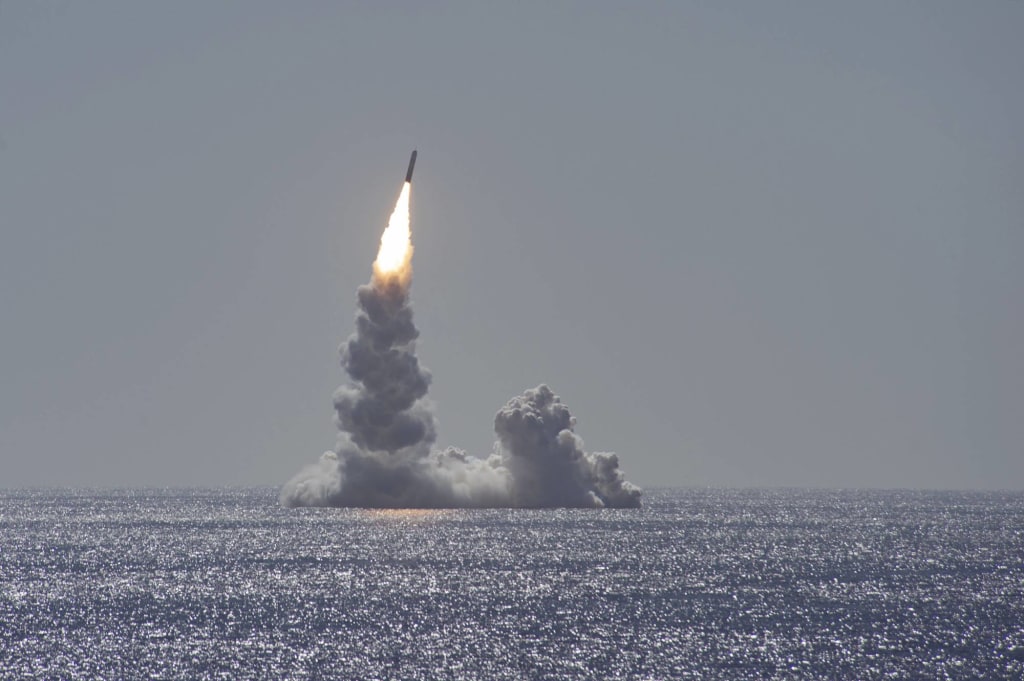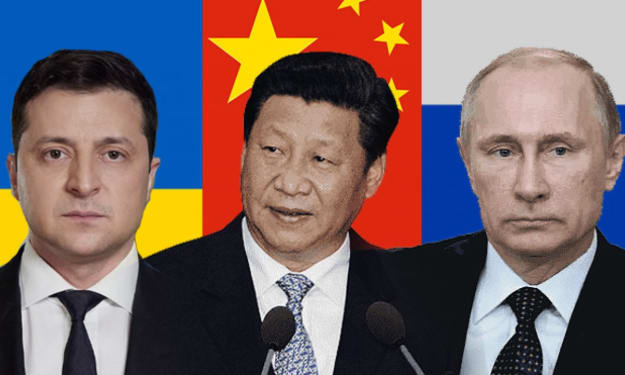The Looming Threat of Nuclear Conflict: Who's Most Likely to Fire the First Nuke? 🪖 💣 💥
Who’s going to be the first to let go off the Nuke

In today's complex geopolitical landscape, the world stands at the precipice of an unimaginable disaster: the possibility of nuclear war. While it may seem like a nightmare scenario, the truth is that the threat is very real, and more present now than at any point since the Cold War. This article will delve into this pressing issue by assessing the nine countries known to possess nuclear weapons, ranking them from the least likely to the most likely to launch a nuclear attack. Before we delve into this grim analysis, it's essential to understand the history and dynamics of the nations with nuclear capabilities, the total number of nuclear weapons currently in existence, and the consequences of nuclear warfare. The dawn of the nuclear age arrived on July 16, 1945, when the United States conducted the first nuclear test, code-named "Trinity." Only 21 days later, the world witnessed the horrific destruction unleashed by atomic bombs on the cities of Hiroshima and Nagasaki. These two bombings remain the only instances of nuclear weapons used in warfare. The nuclear arms race quickly escalated as the Soviet Union, the United Kingdom, France, and China developed their own nuclear arsenals. Israel is also believed to possess nuclear weapons, though it remains officially undeclared. India, Pakistan, and North Korea later joined the club of nuclear-armed nations. To mitigate the dangers of these weapons, the Nuclear Nonproliferation Treaty (NPT) was signed by many countries. However, not all nuclear-armed nations initially joined the treaty. For example, India and Pakistan never signed the NPT. Belarus, Kazakhstan, and Ukraine inherited nuclear weapons when the Soviet Union dissolved in 1991 but later returned them to Russia. South Africa stands as a unique case, as it developed a nuclear weapons program during apartheid but voluntarily dismantled its arsenal after the transition to democracy in 1994. In recent years, North Korea's defiance of the NPT has led to a series of nuclear tests, while Iran and Syria have aimed to establish their nuclear programs but have not yet conducted successful tests. Today, the United States and Russia, despite reductions from their peak Cold War arsenals, still possess a significant number of nuclear warheads, with approximately 1,419 and 1,549 warheads, respectively. These numbers are further reduced through various international agreements, including the Strategic Arms Reduction Treaty (START). However, as of February 21, 2023, Russia's suspension of participation in the START Treaty due to the Ukraine crisis has raised concerns about the transparency of their nuclear capabilities. Overall, there are roughly 12,512 nuclear warheads in existence across all nuclear-armed countries. Determining which country is most likely to launch a nuclear attack involves assessing a range of factors, including geopolitical tensions, leadership stability, and national policies. Here, we present a ranking from least to most likely; Israel:Estimated to have around 90 nuclear warheads, Israel has maintained an official policy of ambiguity regarding its nuclear arsenal. The secrecy around its program suggests that these weapons are primarily for defensive purposes. Israel's conflict is characterized by ideological differences and territorial disputes, making nuclear weapons an ineffective tool for addressing these complex issues. China:With a "no-first-use" policy, China commits to using nuclear weapons only if it faces a nuclear threat. Its stockpile of approximately 410 operational nuclear warheads is focused on maintaining regional stability. While tensions in the South China Sea and with Taiwan persist, China's approach emphasizes defense rather than first-strike capabilities. United Kingdom:The UK has around 225 nuclear warheads and is exclusively sea-based, with Trident missile submarines. While the UK recently increased its nuclear arsenal target to 260, a move contrary to disarmament goals, its proximity to the Ukraine conflict raises concerns over potential accidents with nuclear assets. France:With 290 nuclear warheads, France has a policy allowing first-use in "extreme circumstances of legitimate self-defence." The fact that first-strike scenarios are even contemplated is concerning, especially given France's participation in Ukraine-related activities. Pakistan: Possessing an estimated 170 nuclear warheads, Pakistan's long-standing tensions with India are a significant concern. Growing unrest within Pakistan and the region's potential for resource-related conflicts add to the risks. India:India holds around 164 nuclear warheads and has a contentious relationship with China, as well as border disputes. Unlike China, India lacks a "no-first-use" policy, making it more likely to contemplate first strikes if circumstances worsen. North Korea: Despite its limited nuclear capabilities, North Korea, under Kim Jong Un's leadership, poses a significant risk. The regime's unpredictability and desire to project power create a dangerous environment. United States: With an arsenal of 1,419 warheads and a substantial number on high alert, the U.S. ranks high in terms of nuclear threat. The potential for accidents or miscommunications due to its hair-trigger posture is a cause for concern, particularly given the U.S.'s involvement in the Ukraine conflict. Russia: Russia, with 1,549 nuclear warheads, is at the top of this concerning list. Vladimir Putin's leadership and the unpredictable situation in Ukraine raise the possibility of a first strike. Russia's recent suspension of participation in the START Treaty has reduced transparency, compounding global unease. As the world watches the Ukraine crisis unfold, the specter of nuclear war looms large. Despite the horrific consequences, the threat is very real. It is essential for the international community to work diligently to prevent the use of these devastating weapons. The responsibility falls on all nations to ensure that the specter of nuclear warfare remains firmly in the realm of fiction rather than reality. The potential for catastrophe is a shared burden that no country should take lightly, as the consequences of using nuclear weapons are dire for all of humanity. In this precarious global environment, the hope remains that diplomatic solutions, disarmament efforts, and international cooperation will prevail over the devastating Spector of a nuclear war. However, the world must remain vigilant and aware of the shifting dynamics in the international arena to prevent a catastrophic outcome.
About the Creator
Rakindu Perera
I’m a highly successful content writer with articles recognised by huge varieties of organisations. Also being in completion of a Bachelors Degree in Mechanical Engineering, I have the upmost know when it comes to exteme applications.






Comments
There are no comments for this story
Be the first to respond and start the conversation.